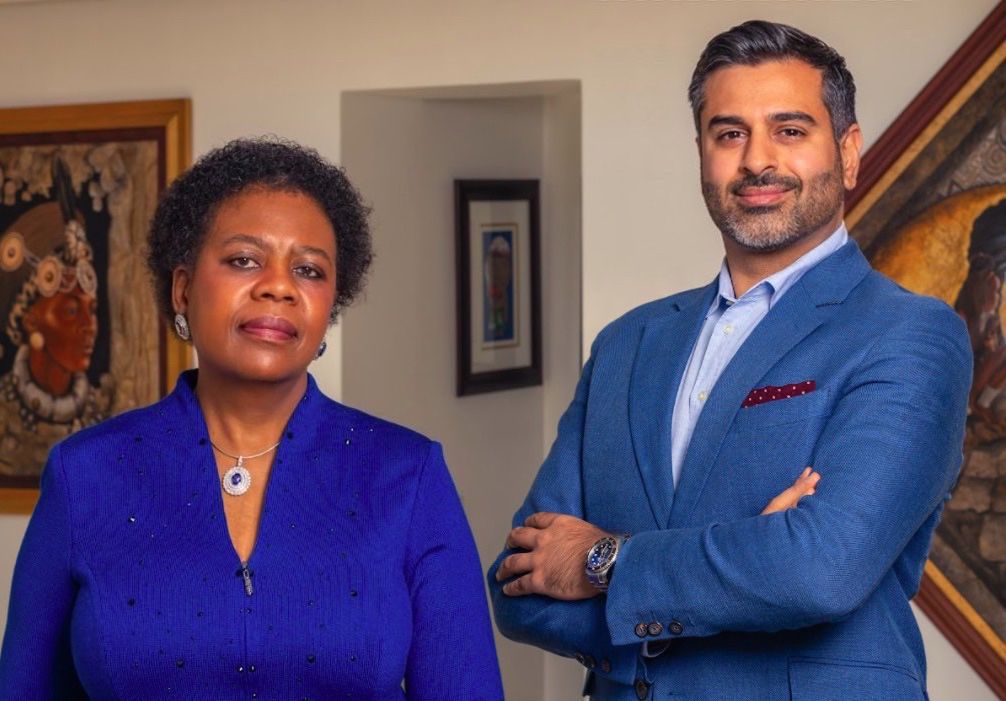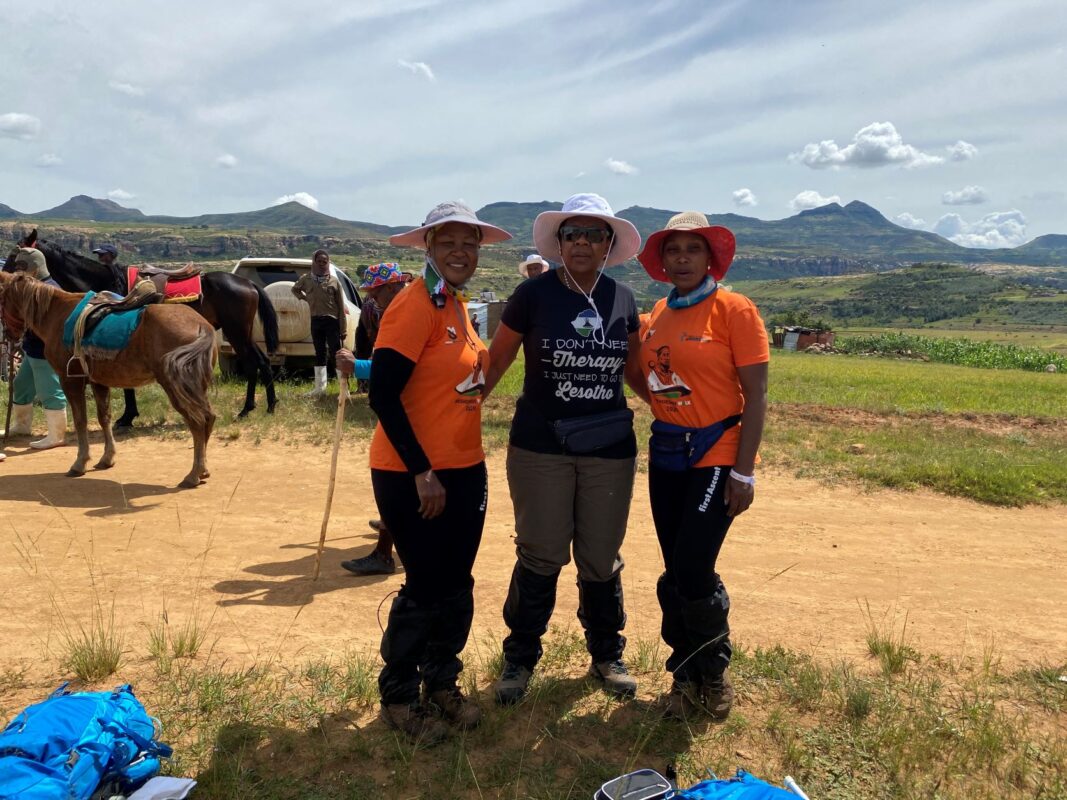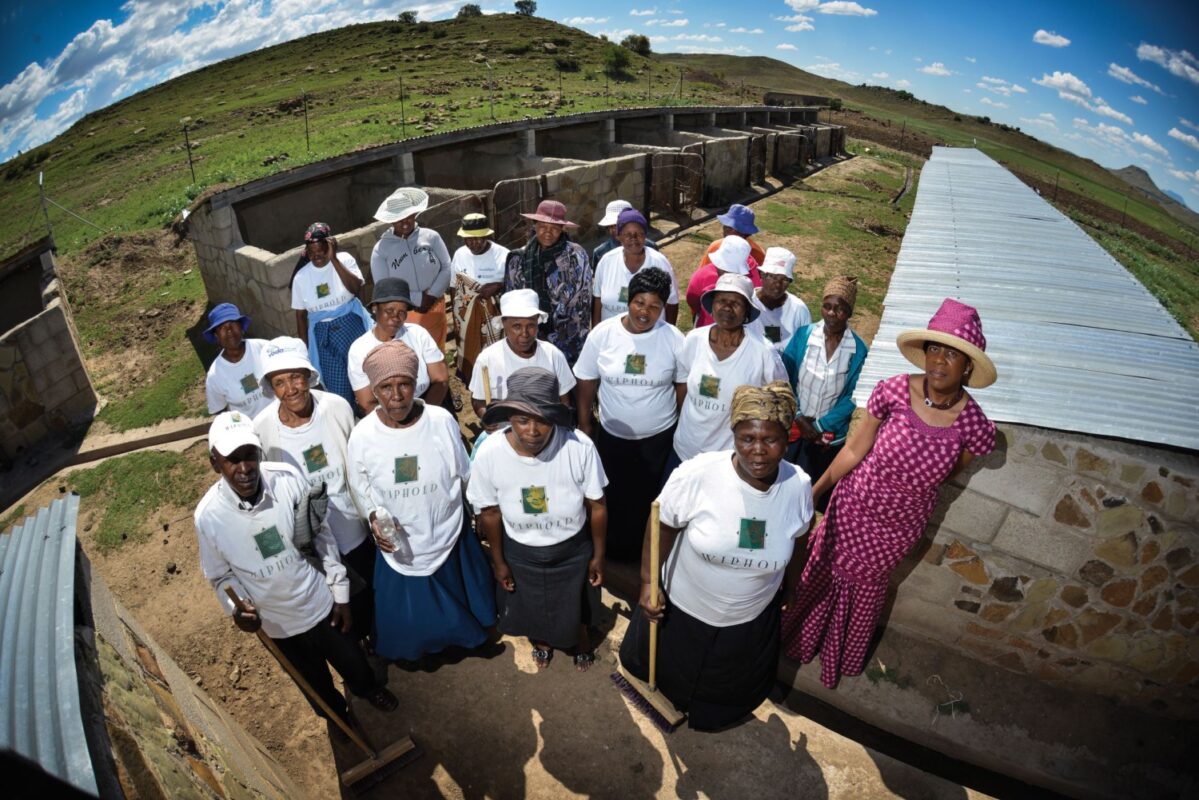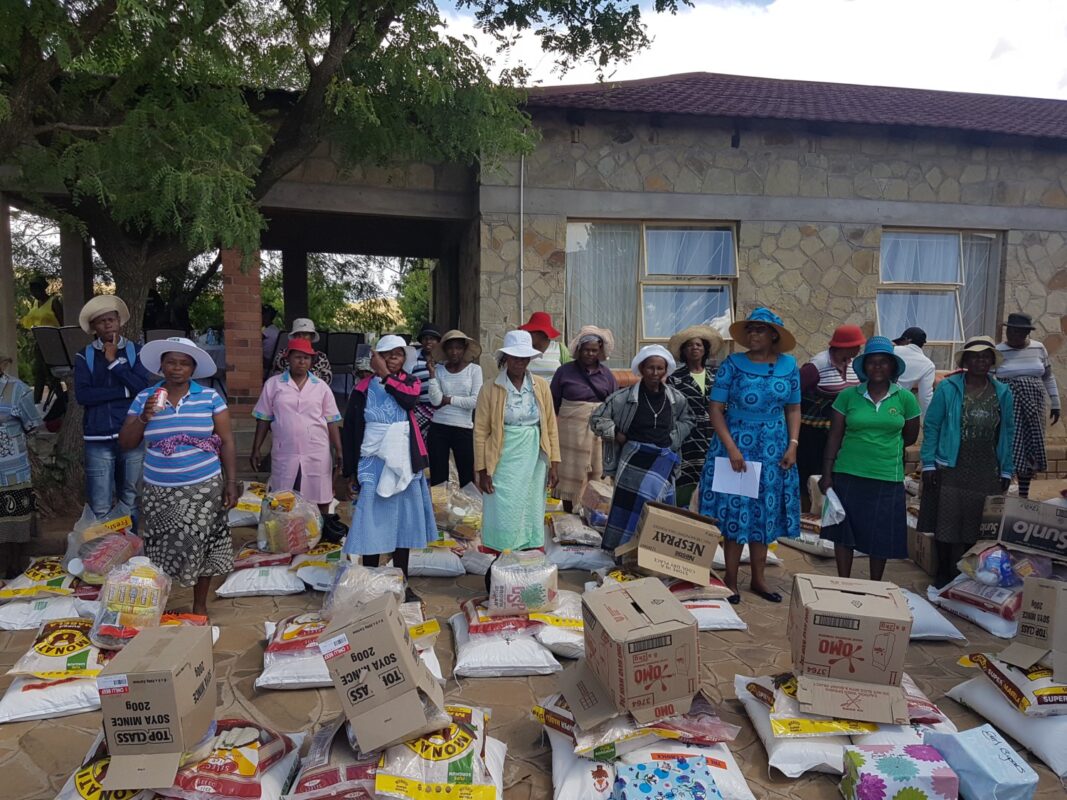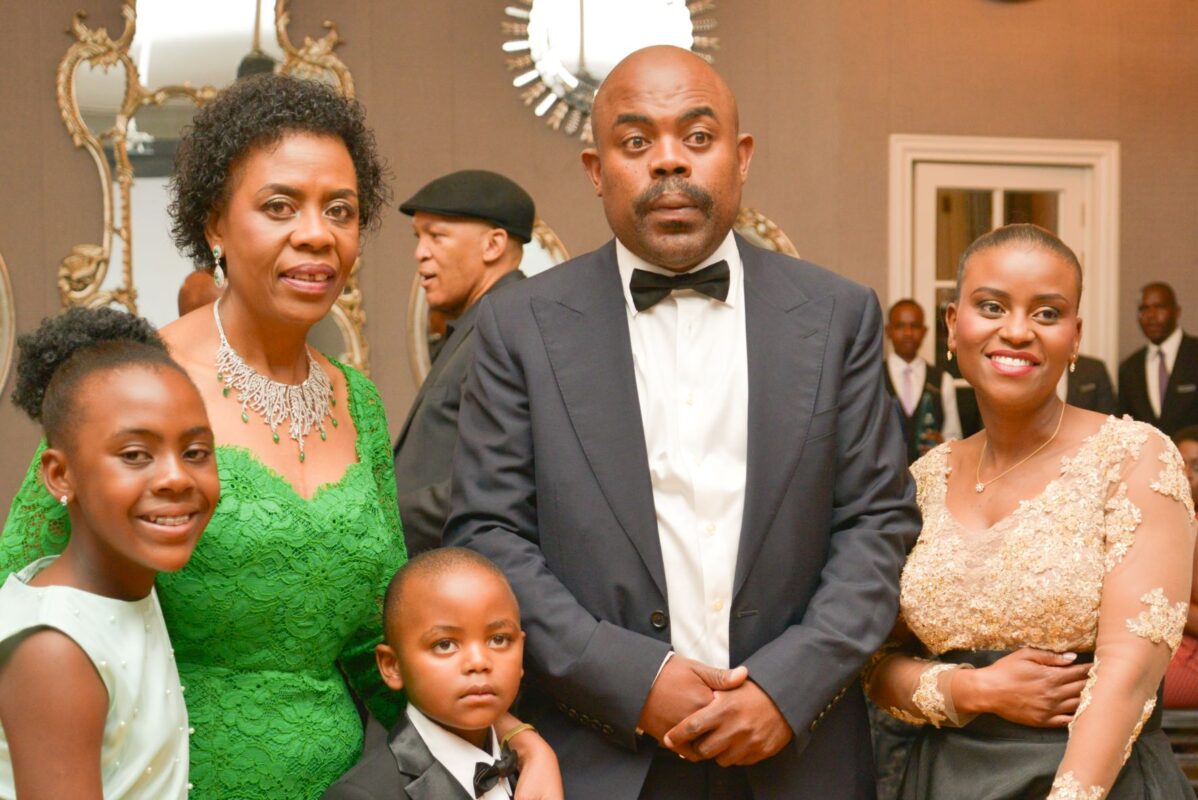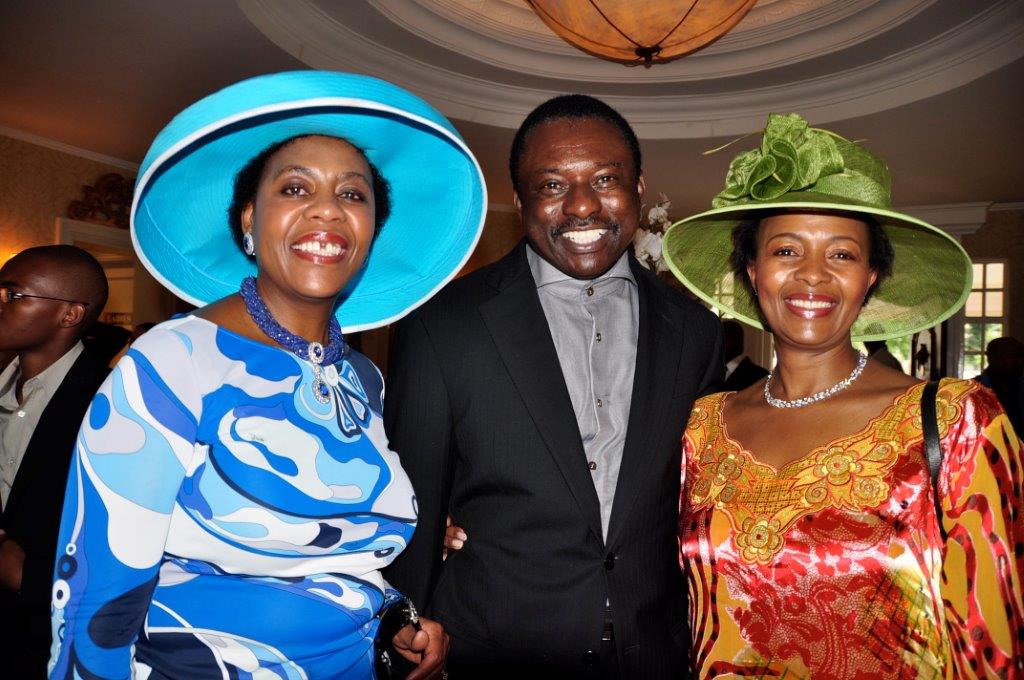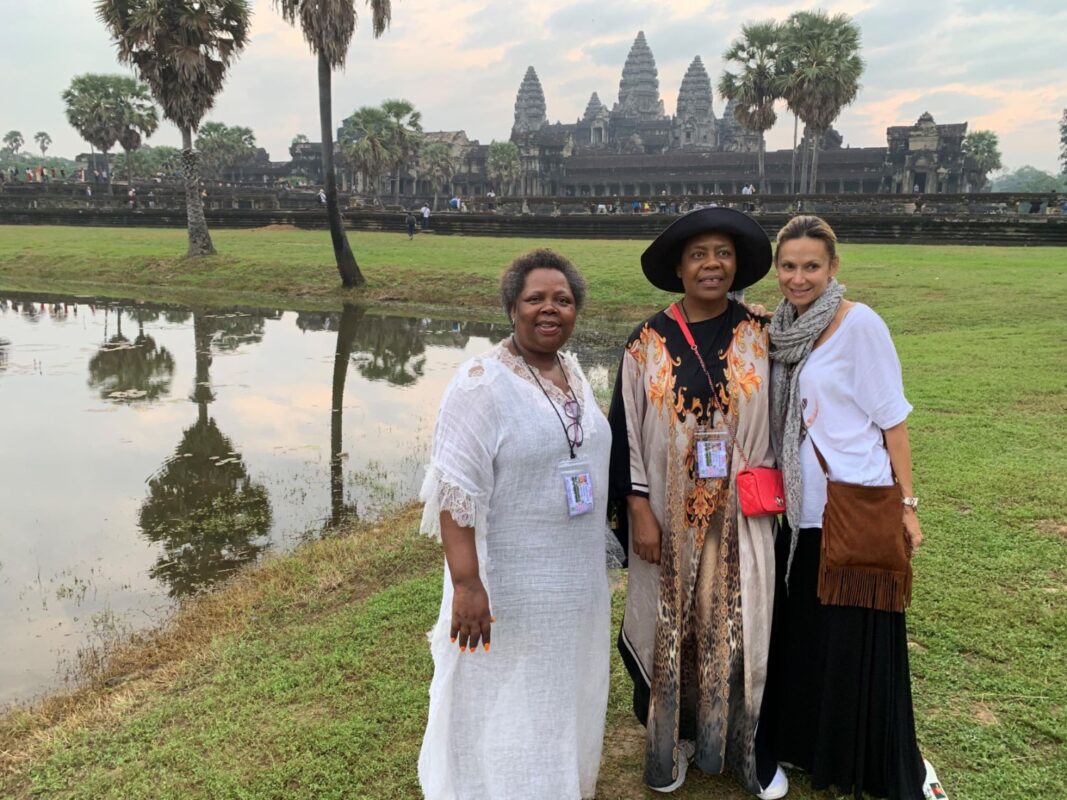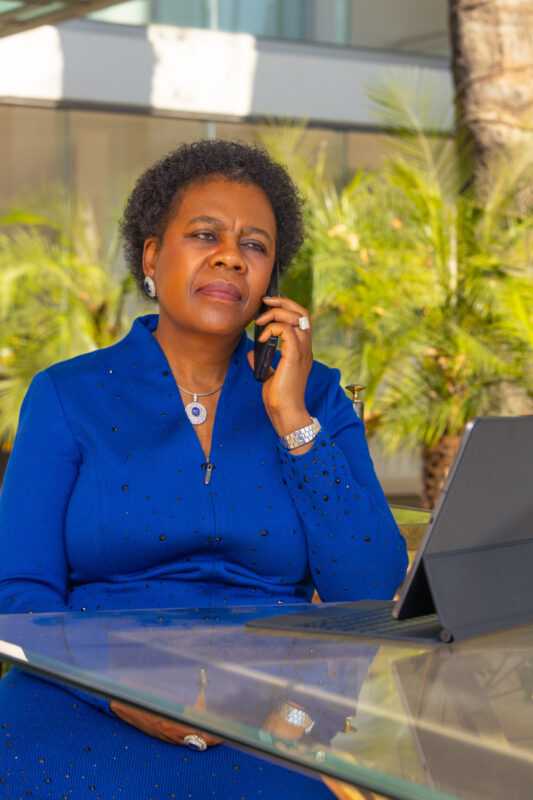MEET LOUISA MOJELA, THE EXECUTIVE CHAIRMAN OF AKANDA, AN INTERNATIONAL MEDICAL CANNABIS COMPANY CULTIVATING ETHICALLY SOURCED CANNABIS IN LESOTHO, SHE IS ONE OF SOUTH AFRICA’S MOST INFLUENTIAL AND SUCCESSFUL BUSINESSWOMEN, SHE WAS SELECTED AS ONE OF FORTY WOMEN FROM DIFFERENT CONTINENTS AND COUNTRIES FOR THE “LEADING WOMEN ENTREPRENEUR OF THE WORLD” SHE WON THE EUROPEAN BUSINESS ASSEMBLY’S “BEST MANAGER OF THE YEAR.
“I believe that the success of a company must be measured by the development of the community around it-- communities cannot be left impoverished whilst companies thrive at their exclusion, especially women and youth”
Who is Louisa Mojela? Define yourself
I was born in South Africa to parents from the Kingdom of Lesotho, southern Africa. My father was a migrant laborer working for Anglo American gold mines and my mother worked as a farmer in planting season when she wasn’t looking after me and my 6 siblings. Through hard work and determination, I became the woman I am today: a daughter, a wife, a mother, a grandmother, and an entrepreneur. I am the Executive Chairman of Akanda, an international medical cannabis company cultivating ethically sourced cannabis in Lesotho, out of Bophelo Bioscience and Wellness, a cannabis farm that I founded. I am one of the first black African women to lead a global cannabis company in Lesotho and I am passionate about the role cannabis can play in transforming the economies of developing nations.
How were you as a kid?
I’m the second child out of seven siblings, so I took on a lot of responsibility from an early age. During planting and harvest season, my mother traveled to Lesotho to work at the family farm, so I would look after my siblings. My life centered around my chores at home, tennis, and school. I was very devoted to my studies and always tried to have a good relationship with my teachers. I was always considered to be the quiet one of my friends and siblings, never interested in getting into trouble.
You hold a Bachelor of Commerce from the National University of Lesotho. You have also completed the Executive Leadership Program at Wharton School of Business at The University of Pennsylvania, why did you choose those courses of study?
Growing up in South Africa in the seventies, the common careers for black people were teacher, nurse, doctor, or lawyer. There were very limited career choices. I knew I couldn’t be a teacher as I do not have much patience, nor become a nurse or doctor, so the easy choice was doing the number crunching which I happened to enjoy. It became very clear that business related studies were becoming important, so I decided to stick with that path.
Tell us a little bit about your professional background, how did you start in your career to become the Executive Chairman of Akanda?
In 1994, together with three other women colleagues we established Women Investment Portfolio Holdings (Wiphold), a black women-owned and managed investment firm. As black women previously disadvantaged by the Apartheid regime, the sole purpose of the company was empowering women in South Africa, particularly black women. I became the Executive Chairman in 1999 when we listed the company on the Johannesburg Stock Exchange. Since then, I have gained a lot of experience running and operating businesses and serving on the boards of large companies in South Africa. After Lesotho legalized cannabis for medicinal purposes in 2018, I founded Bophelo Bioscience and Wellness, a medicinal cannabis cultivation company. In 2020, leading cannabis cultivation, manufacturing, and distribution company Halo Collective, acquired Bophelo as its wholly owned subsidiary and I was appointed Executive Chairman of Halo. In June 2021, Halo split its assets-- its international operations, Bophelo in Lesotho, and Canmart in the UK, have been reformed into Akanda, which will focus on supplying top quality and ethically sourced medical cannabis products to international markets, while Halo Collective will focus on recreational cannabis in the multiple US states where it operates. I have since resigned from the Halo Collective board and am now the Executive Chairman of Akanda.
“Always keep on top of what the market requires and focus your offering rather than try to do too many things at once”
In simple terms, what is Akanda and what makes it unique in the market?
Akanda is a vertically integrated company growing and cultivating high quality medicinal cannabis, as well as manufacturing ethically sourced medicinal cannabis and wellness products in Lesotho and supplying them to international markets. It’s unmatched access of 200 hectares, combined with the industry's best strains from suppliers such as OG DNA , means Akanda is growing some of the world's highest quality products at the lowest unit costs. These products will be exported to fast growing markets in the UK, then in Europe and beyond -- all while empowering women and vulnerable people. Akanda is using its platform as a force for making a positive impact and is deeply committed to the highest standards of ESG operating and disclosure practices.
You are one of South Africa’s most influential and successful businesswomen, you were selected as one of forty women from different continents and countries for the “Leading Women Entrepreneur of the World, you won the European Business Assembly’s “Best Manager of the Year” at an event held at the London Institute of Directors , you are the Chairman and Group CEO of Wiphold, What's the recipe for your success?
Early on in my career, it became abundantly clear that failure is not an option when you’re a woman in business. WIPHOLD was the first black, women-led company in the country; being looked to as trailblazers meant we carried a huge responsibility of representing all women. Failure on our part would have damaged the reputation of the next crop of women wanting to be in business. We knew we had to work twice as hard as our male counterparts, and practice integrity, respect, and adherence to corporate governance, accountability, transparency, courage, and competence in all we tried to do and achieve.
In an interview you mentioned that you are called to serve the disadvantaged, specifically women and children and you support family projects and building schools, can you tell us more about it?
My parents came from a small village in Lesotho, where many women and children are impoverished and vulnerable. I was fortunate that my parents were able to build a life for us that set me up to succeed. I feel strongly that it is the responsibility of those who have succeeded in business, to make sure that we contribute to the development of the country. I believe that the success of a company must be measured by the development of the community around it-- communities cannot be left impoverished whilst companies thrive at their exclusion, especially women and youth. For me, education is the cornerstone of development-- no country can prosper if it’s citizens are not educated through the Mophuthi Matsoso Development Trust, which I founded in 2010, we’ve undertaken socio-economic initiatives such as the construction of a school with state-of-the-art learning center and supplied computer equipment at a local school in Lesotho. In addition to funding educational projects, the Trust works on empowering women through programs that develop skills, build capacity and help generate funds; and invests in agriculture to fight hunger and promote food security.
What does a normal workday look like for you?
There's no such thing as a normal workday for me because it is never the same. Some days are more hectic than others between meetings with colleagues or local government, interviews with media, and visiting the grow site. With many of my colleagues from parent company Halo being in the United States, there are often late nights to accommodate the time difference between South Africa/Lesotho and California. But every day is a productive one and at the end of each day, I end up feeling accomplished.
“Maintain your integrity even when meritocracy might be overlooked in favor of a man”.
What do you love most about your job? & What is the most difficult part
I love being part of a diverse workforce at Bophelo and knowing that employment could change the lives of our staff for the better. The most difficult part of my job is navigating the technical side of cannabis. Growing, cultivating, and manufacturing it properly is extremely important and it requires rigorous training, particularly helping our employees gain the required industry experience.
What is one strategy that has helped you to grow your business?
Always keep on top of what the market requires and focus your offering rather than try to do too many things at once.
Do you have a book, podcast, or talk that’s had a deep impact on your thinking?
My favourite books are biographies especially those of inspiring women in leadership
Do you have any particular philosophy that guides your career decisions?
My philosophy is to always maintain humility and remember your roots.
What are the do's and don’ts in business, especially for businesses run for women?
Do maintain your integrity even when meritocracy might be overlooked in favor of a man. Don’t try to emulate men, we are who we are, and women should remain as such, and that is fierce competitors who don’t have to cast aside our femininity.
“I think it's important for women to ask for the help they need and not try to do it all”
Everybody has had dark moments in their lives, what have you done to get out of that phase?
For me, the key to pulling myself out of tough times is to remind myself of how far I’ve come, and to keep fighting for where I still want to go.
What do you like to do in your spare time?
I love to travel. I'm fortunate to have been to some of the most incredible places in the world, but my favorite place to explore is Africa. I think Africans are the most friendly and welcoming people, and the continent is so vast with a wealth of places to wander. I love spending time with my grandchildren, and as they are getting older, bringing them with me on my travels and experiencing other cultures together. From childhood tennis has been one of my passions, and I go to as many tournaments as I can.
Many authors say women can and must strive to have everything – a shining career, a blossoming family life and a perfectly balanced lifestyle all at once, others point out that– then women are placing unrealistic expectations on themselves if they believe they can have it all, you are married and have kids, so according to your experience, what do you think about these statements?
I am married, I have children, grandchildren and nieces who all live with me. At the same time, I also have a hectic career that requires a lot of my attention. I think it's important for women to ask for the help they need and not try to do it all. I have a wonderful personal assistant at work, I have amazing staff at home, an au pair for the little ones, as well as my husband holding the fort whenever I’m traveling for work. For us Africans we also rely on extended family who are always willing and happy to assist. I recognize that being able to hire people to help make my life more manageable is a privilege that not everyone can afford, but I’m incredibly grateful to be in a position to do so.
“Once one moves from being an employee to being an entrepreneur the glass ceiling shatters because then you can master your universe in the manner you want”
What are your plans for the future?
I am planning to continue working on socio-economic initiatives that uplift my community, especially women and young people.
There is still the glass ceiling for women in the world: Fewer opportunities, jobs underpaid just for the fact of being a woman, etc. Have you experimented with the glass ceiling? If yes, what are the biggest challenges you have faced and how have you overcome them?
Employed women continue to be underpaid, passed over for career advancement, and viewed as limiting their career if they choose to have children. Once one moves from being an employee to being an entrepreneur the glass ceiling shatters because then you can master your universe in the manner you want.
What tips can you give to young girls who want to become an entrepreneur like you?
Being an entrepreneur is hard work, it requires dogged determination, commitment, and passion for what you aim to achieve. Always remember that there will be sacrifices that you will have to make on the way like foregoing a beautiful house as you put the building blocks in your business. Do not cut corners and expect quick fixes. When you achieve your goals, reward yourself.
I think in your position, many people may have the wrong idea of who you are, and what do you (professionally), with this idea in mind, what is being Louisa and what's not?
I’m a professional woman from the small village of Tsakholo in Lesotho who never forgets her roots. I’m proud of the career I’ve built and enjoy the good things it has afforded me, but I am also equally cognizant of the many vulnerable women and children who require basic things that we tend to take for granted and I work every day to try and help better their lives
Who is the woman you admire the most and why?
The woman I admire the most is my late mother. To me she means the world. She raised all seven of her children with so much love, and even though we didn’t have much, she made sure we were always happy. She instilled very good values that still resonate with me long after she is gone.
Name: Louisa Mojela
Sector: Cannabis
Company: Akanda
Designation: Executive Chairman
Country: South Africa
Social media:

